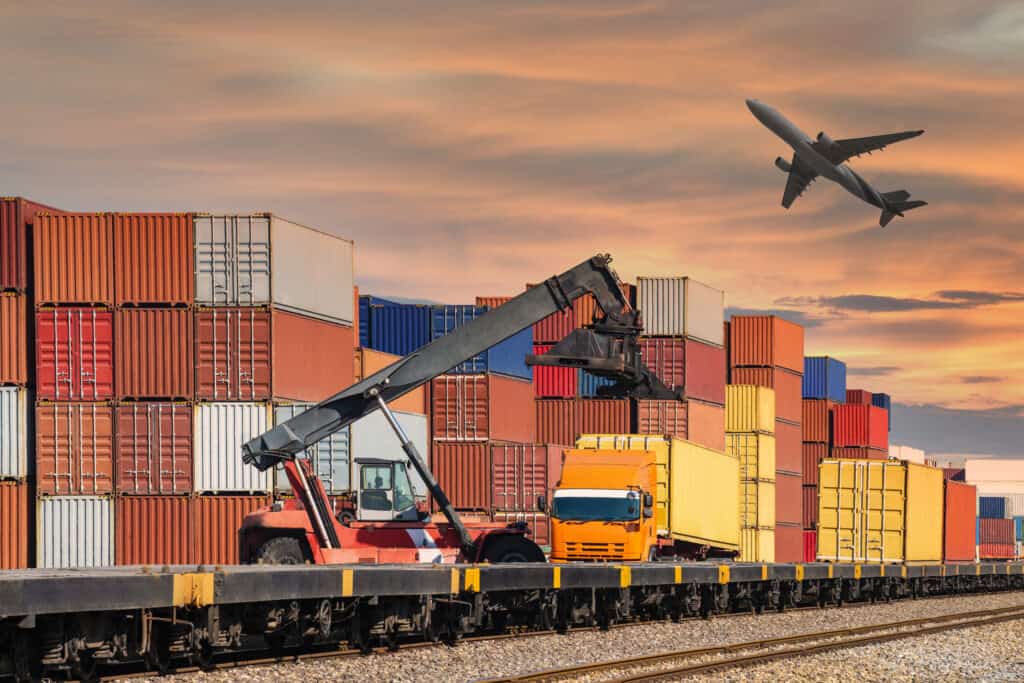Disruptions in the supply chain have been making headlines in recent months as businesses that rely on shipments from overseas and even domestic trucking find they can’t get the materials they need.
It’s a phenomenon that’s affecting mainstream businesses as well as those operating in the cannabis industry. And it’s a problem that doesn’t appear to be going away anytime soon.
Florida-based Fluent, a vertically integrated multistate operator, ordered growing benches from Holland in June. The company is still waiting, CEO Robert Beasley said. They improvised by placing pots on the ground and manually watering and feeding their marijuana plants.
“We have this high-tech system, and we’re not using 60% of its functionality,” Beasley said. “The whole point of automation is not to do it manually.”
But, Beasley said, the biggest problem with the supply chain — and labor shortage — is domestic.
“When we talk about China, what we’re really talking about is our own ports,” he said. “Once it’s at a port, getting it on a truck to get it here is a challenge.”
And while some companies are able to pivot to much higher-cost air freight, it’s not an option for all products — like Beasley’s heavy grow benches or the materials needed to construct cultivation facilities.
Cannabis supply chain disruptions affect companies in different ways
Jon Marshall, chief operating officer of Deep Roots Harvest in Las Vegas, said he hasn’t had much trouble with getting products, but getting the materials he needs to complete the four dispensaries he’s building has been tough. A refrigerator he wants, for example, has been back-ordered for three months. He’s already started purchasing things like microwaves and refrigerators for a project that’s wrapping up in January.
“It’s all made on demand, and historically they can keep up with demand, but the manufacturer is backlogged,” Marshall said. “We’ve started purchasing stuff well in advance.”
Ricardo Willis, CEO of San Francisco vaporizer manufacturer Hanu Labs, has been proud of the fact that all of his products are made in the USA, but getting the parts he needs to manufacture them has become increasingly difficult. The printed circuit boards (PCBs) Hanu uses, for example, are assembled in the US but the components come from China.
Soaring costs for US cannabis companies
“The pricing for shipping is completely outrageous,” Willis said. “We’ve absorbed a lot of those costs and haven’t raised the prices of our products, but at some point we’ll have to in order to survive.”
Willis could have the PCBs shipped by air, but he said it would quadruple the cost, which at some point will have to be passed on to his customers. It’s a problem that Willis said could drive the company’s manufacturing operations overseas.
Both Marshall and Willis have concerns that extend beyond supply chain issues. A new rule — the Prevent All Cigarette Trafficking (PACT) Act — prohibits vaping products from being delivered through the US mail. The act was designed to keep teenagers from purchasing nicotine vaporizer products online and having them shipped, but the language does not exclude cannabis delivery systems.
“Most of us were using UPS and FedEx, but they sent out letters that told us they would no longer ship our products,” Willis said. “That’s cut off our ability to ship to our customers.”
Another non-plant-touching business that’s feeling the impact of supply chain disruptions is Austin, Texas-based LED lighting manufacturer Fluence by OSRAM. Fluence CEO Dave Cohen has had a similar experience to Beasley’s in terms of delays and cost increases — a chip that used to cost $0.08 is now going for $80.
“I’m good for a container or two a month, but half my stuff is floating around the Port of Los Angeles,” Fluence CEO Dave Cohen said. “I’ve had to go back to the supplier and have it air freighted over. What used to cost $3,000 or $4,000 is now about $30,000.”






2 thoughts on “How supply chain disruptions are impacting the cannabis industry”
Pingback: BDSA Brand Insights: Is “true” brand loyalty coming to legal cannabis? - MJ Brand Insights
Pingback: Is Bigger Better? Depends Who You Ask – High Supply Journal